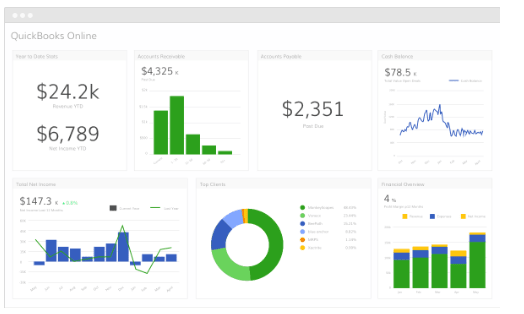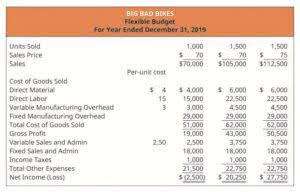
We offer a host of helpful back-office administrative services designed to help you drive your business forward. We believe the oil and gas industry is at the beginning of the back-office technological revolution. Over the next decade, companies will see a fundamental transformation of how they can eliminate waste, streamline accounting, and automate daily tasks, as well as reduce overall G&A. The more you can think outside the box to challenge the status quo, the more efficiencies you’ll gain in the long term.

Retail stations leases
- Harrison is very involved with the University of Tulsa, where he earned a degree in MIS and Accounting.
- For instance, a contract might stipulate that revenue is recognized when the oil is delivered to a storage facility, rather than when it is extracted from the ground.
- For instance, the introduction of IFRS 16, which deals with lease accounting, has had a significant impact on how oil and gas companies report their lease obligations.
- This allocation is usually governed by the joint operating agreement (JOA), which outlines each partner’s share of costs and production.
- This doesn’t really affect the income statement, but you do need to add back deferred taxes on the cash flow statement.
The industry often deals with long-term contracts, which can complicate the timing and measurement of revenue. One of the primary frameworks guiding revenue recognition is the IFRS 15 standard, which outlines a five-step model to determine when https://www.bookstime.com/ and how much revenue should be recognized. Oil and gas companies need to adhere to specific regulatory and tax reporting requirements, and their financial reporting has to comply with industry standards and guidelines. These requirements vary widely from state to state, and it’s important to have a system that can support these requirements and make compliance a breeze. Our team can be up and running within days, processing accounts payable invoices and running joint interest billing, among other services.

Simplified disclosure reporting

The impairment assessment typically involves estimating the future cash flows that the asset is expected to generate, discounted to their present value. Factors such as declining oil prices, increased operating costs, and changes in regulatory environments can trigger impairment reviews. For instance, a significant drop in oil prices may lead to a reassessment of the economic viability of certain fields, resulting in impairment charges. These charges can have a substantial impact on a company’s financial performance, affecting both its income statement and balance sheet.
- Revenue recognition in oil and gas accounting can be complex due to factors such as production-sharing agreements, joint ventures, and royalty payments.
- As the oil and gas landscape continues to evolve, adopting innovative lease accounting solutions is essential for companies aiming to optimize operations and maintain compliance.
- However, the complexity of lease agreements in this sector poses unique challenges for financial professionals responsible for ensuring accurate, compliant accounting.
- Additionally, external factors like oil prices, technological advancements, and regulatory changes play a pivotal role in reserve valuation.
- Instead, business leaders need data that can help support critical business decisions and fuel growth.
- These topics are crucial for understanding the unique accounting issues in the oil and gas industry.
Comprehensive Guide to Oil and Gas Accounting Practices
- It provides guidance on the recognition criteria, measurement, and disclosure of revenue in financial statements.
- A diversified oil & gas company has slightly different statements and you see more items related to its midstream and/or downstream capabilities; for a good example, click here to view Exxon Mobil’s financial statements.
- The software accommodates each standard’s unique requirements and allows for the generation of disclosure reports in accordance with those standards.
- For accounting in the oil and gas industry, best practices are ever-evolving due to technological advancements, macroeconomic conditions, and the continual need to reduce general and administrative (G&A) costs.
- The Council-Manager relationship is comparable to that of a board of directors and CEO in a private company or corporation.
- One of the unique aspects of PSCs is the concept of “cost recovery.” The contractor is allowed to recoup its exploration and development expenditures from a portion of the produced oil or gas.
- These statements provide a detailed breakdown of costs incurred and revenues generated, which are then allocated to each partner based on their ownership percentage.
At the center of a complex and changing regulatory environment, the oil and gas industry faces challenges on a daily basis. Many oil and gas companies struggle with a backlog in non-operating joint interest billing and revenue data entry, leading to shortcuts, workarounds or delays in the monthly closing process. Outsourced accounting can create business process automation, resulting in oil and gas companies achieving significant savings and reduced cycle times. In today’s business environment, many oil and gas companies need help navigating the industry’s complex financial landscape, which includes fluctuating markets and stringent regulatory requirements. While tracking your company’s finances and maintaining basic bookkeeping is essential, it has limited use as a tool to give companies a competitive advantage. Instead, business leaders need data that can help support critical business decisions and fuel growth.

Accounting Training for the Oil and Gas Industry: Introduction to Oil & Gas Accounting
Our goal is to provide oil gas bookkeeping financial professionals, accountants, and industry leaders with the knowledge and tools needed to ensure compliance, improve financial transparency, and optimize leasing strategies in a rapidly changing environment. The oil and gas industry operates within one of the most capital-intensive sectors globally, driven by the need for extensive infrastructure, equipment, and operational support across vast geographies. In this dynamic environment, leasing is critical in enabling companies to use essential assets— ranging from land and drilling rigs to transportation pipelines, retail, and storage facilities— without the need for substantial upfront capital. However, the complexity of lease agreements in this sector poses unique challenges for financial professionals responsible for ensuring accurate, compliant accounting.
Accurate reserve estimation is crucial for financial reporting, as it affects asset valuation and depletion calculations. Companies often employ specialized software like Petrel or Eclipse to model and estimate reserves, ensuring precision and compliance with industry standards. By addressing the unique requirements of JOAs, Nakisa ensures that oil and gas companies can manage their lease portfolios with precision, compliance, and efficiency, regardless of the complexity of their business arrangements. Addressing these accounting bookkeeping challenges necessitates a strategic mindset, well-defined processes, and a deep understanding of both industry-specific nuances and regulatory frameworks. This CPE course takes a close look at the intricate world of oil and gas accounting, designed to equip you with the skills and knowledge to navigate this specialized industry confidently. It covers a wide array of topics, including the successful efforts and full cost methods, reserve reporting, unit of production method, severance taxes, and joint interest accounting.